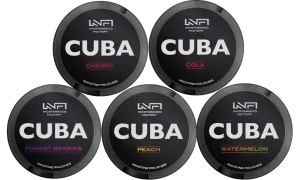HPLC Analysis: Top 4 Applications

Are you familiar with the term “high-performance liquid chromatography” or HPLC?
If you’re drawing a blank, that’s okay. Most people haven’t heard of HPLC unless they’re in the field of science. But even if it’s unknown to you, you’d be surprised to learn that HPLC analysis has been instrumental in our everyday lives.
What is HPLC analysis? In the simplest of terms, HPLC is an analytical method used to separate and identify substances in a mixture.
You might say, that’s great and all, but what does that have to do with you? Well, HPLC is keeping your food safe from contaminants such as pesticides. When doctors are perplexed about an illness, HPLC helps them make an accurate diagnosis.
Keep on reading to learn about the most common applications of the HPLC analysis method.
- HPLC Analysis in Medical Diagnosis and Research
HPLC systems are precise instruments, from the machine that analyzes samples to the nylon syringe filter for HPLC. It can separate and study molecules to a higher degree than other techniques.
Laboratories use HPLC to examine biological samples such as blood, urine, or cerebrospinal (CSF) fluid. It can test for the presence of a specific compound or metabolite that can provide a clue to the nature of the disease. It’s a valuable diagnostic test for muscular dystrophy, heart disease, hepatic disorders, and more.
It also assists researchers in identifying markers of various diseases. For example, HPLC can determine the levels of dopamine and its metabolites in the diagnosis of Parkinson’s disease. Not only does HPLC help with early detection, but it’s also valuable for monitoring disease progression.
- HPLC in Food Analysis
The use of chemicals in food production and agriculture is very concerning to most consumers. Even a trace of pesticides in our vegetables is unacceptable.
We can thank HPLC for its ability to recognize and quantify pesticides that might be present as residue on our vegetables. HPLC can also analyze other compounds of interest, such as sugars and preservatives used in food and drink production.
- HPLC in Drug Development
Pharmaceutical companies use HPLC in various stages of drug development. Its general use is in analyzing the ingredients in each pharmaceutical product.
It’s also used for quality control and to control drug stability. In particular, HPLC impurity analysis helps manufacturers present only the purest products to consumers.
Another vital role of HPLC is in investigating ingredients that are difficult to work into the final product. Examples include those that have high molecular weights or are unstable at specific temperatures. With HPLC, manufacturers can adjust different parameters to make them suitable for the desired dosage form.
- Legal Use of HPLC
Have you ever watched crime TV shows like CSI? HPLC and other chromatography methods are frequently used in forensic testing.
Did the victim overdose on a recreational drug? HPLC can detect traces of substances such as cocaine, LSD, or opioids. It can help establish the cause of death, and the police can use the HPLC findings as evidence.
It’s also helpful in proving doping allegations in sports. Even if the drug is designed to disappear, HPLC can still catch its metabolites.
Let’s All Appreciate HPLC
HPLC analysis does a lot of things in the background. However, after reading this post, you can’t deny its importance in many aspects of our lives. It has a vital role in food and drug production, medical research and diagnosis, and the law.
Please feel free to browse our site for more tech news and articles.






